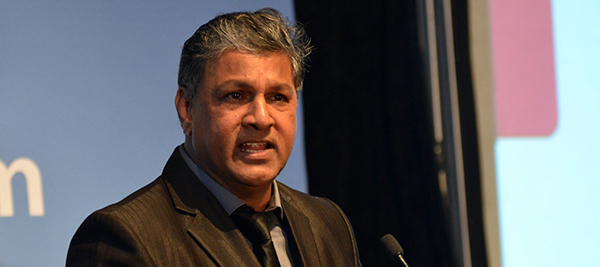 |
Dr Gansen Pillay, Deputy Chief Executive Officer of the National Research Foundation, explaining to the scholars what will be expected of them.
Photo: Steven Collett |
On Monday 25 November 2013, young researchers were welcomed to the University of the Free State (UFS) to take part in the 2nd Annual South African Young Scientists Summer Programme (SA-YSSP).
These 36 scholars, hand-picked from some of the world’s most promising and top researchers, will spend altogether three months in the Free State to work on various projects.
The SA-YSSP is a novel three-month programme for advanced doctoral candidates whose research interests align with the Department of Science and Technology’s (DST) grand challenges and the International Institute for Applied Systems Analysis’ (IIASA) current research programmes regarding global environmental, economic and social change.
Dr Priscilla Mensah, Co-director of the SA-YSSP, says the University of the Free State is proud to host the Southern African Young Scientists Summer Programme, which brings together some of the world's greatest minds in systems analysis to work with talented young scientists on addressing complex global challenges.
“At the end of the programme, the young scientists will showcase their work during a two-day colloquium (20-21 February 2014), which will also be streamed live to a wide audience. Additional information on the programme is available at www.ufs.ac.za/sa-yssp."
The programme will form part of an annual three-month education, academic training and research capacity-building programme jointly organised by IIASA, based in Austria, the National Research Foundation (NRF) and the DST. IIASA is an international research organisation that conducts policy-oriented scientific research in the three global problem areas of energy and climate change, food and water, and poverty and equity. South Africa’s engagements with IIASA, specifically with regard to the SA-YSSP, relate primarily to the DST’s Ten-Year Innovation Plan.
The UFS is the first institution outside Austria to host the Summer Programme. Researchers in the programme are, among others, from South Africa and the rest of the African continent, the USA, the Netherlands, India, Hungary, Austria and Germany.